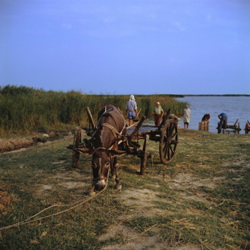Migrants boosting labour markets and transferring knowledge
Well-established communities of foreigners are to be found in all major cities. Pre-industrial cities and their labour markets are considered to have been quite open to foreigners, and thus formed the crux of the circulation of women, men, wealth and knowledge between pre-industrial European countries. Previous research on migratory chains and professional concentration of ethnic groups has shown that immigrant communities were not secondary actors on the labour market stage, but rather assumed important places in their field of professional or commercial operations. The Migrantworkeurolab project traces the lines of a common working space, a European labour market where, despite cultural differences among its women and men, wealth and knowledge move along networks and contribute to local environments. In particular, project work focused on analysing the European labour market during the pre-industrial age in order to describe it as an area built up by the mobility of its workers and inhabitants, and as a location for knowledge transfer. Research concentrated on the complexity of the transfer of knowledge dynamics, emphasising the role of the mobility of migrant workers in constructing the global interdependence of various regions in Europe. In this context, migrants covering long distances, but all the while maintaining contact with their places of origin, constitute a veritable bridge between different places across Europe, and even beyond. Other project work examined differences and similarities in the attitudes of European countries towards migrant workers and their inclusion in society. Of particular interest were the dynamics between the 16th and 17th centuries, during which time migrants experienced differing receptions, contingent on place and time.







